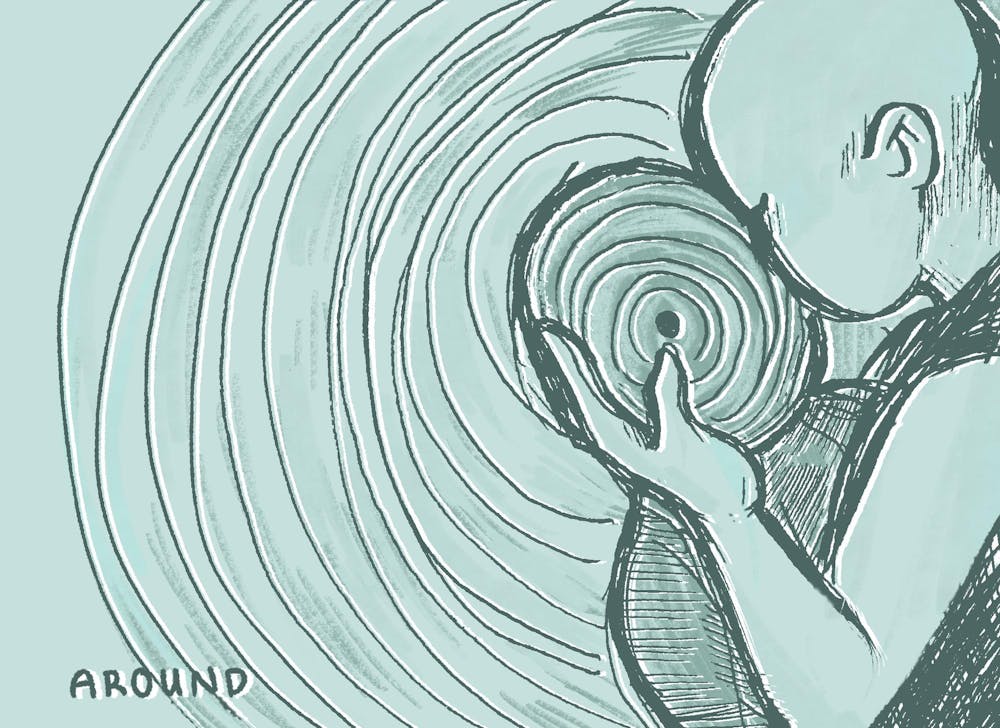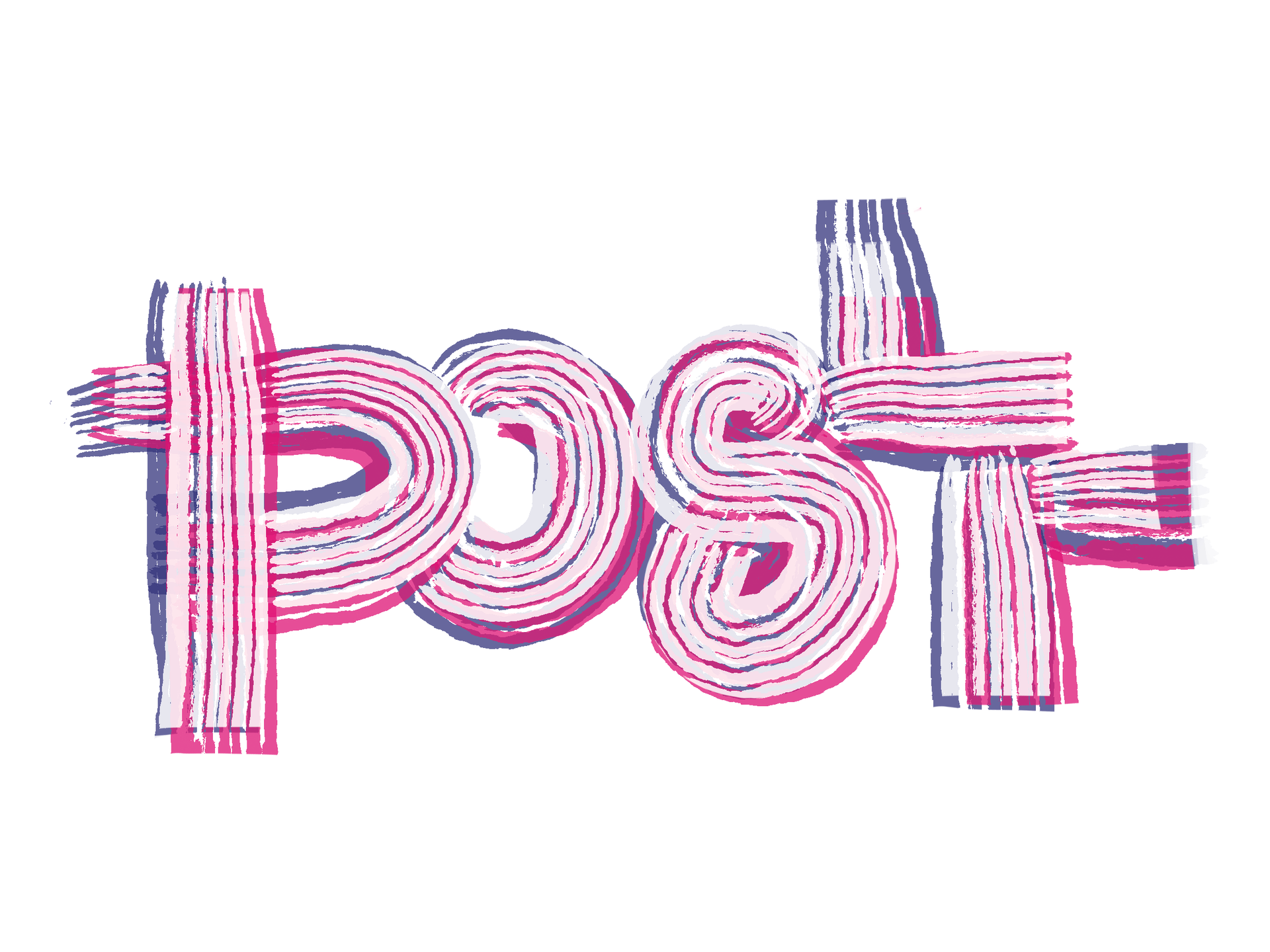Serendipity is not a feeling I’d expect to experience often, but somehow, I do. Songs, words, and people seemingly come into my life right when I need them most.
Last week, my playwriting instructor imparted some words to me that I’ll never forget. “I know what feeling I want to convey in this piece,” I said tentatively, censoring myself as I spoke, “but I don’t really know, like, how to actually do it?”
I’d been having writer's block, too deeply submerged in a depressive episode, too detached from reality to feel any feeling besides general malaise. I couldn’t quite identify my emotions precisely enough to write; it became difficult to identify the exact location of my pain—which is, unfortunately, my usual starting tactic for most creative processes.
Kathy, with grace and wisdom, scribbled on her notepad, quickly holding up a drawing of a solid dot in the middle of a few roughly drawn circles. “If this here is the core of an emotion,” she said, pointing at the dot with her pen, “you can let yourself write around it, like these circles. You don’t have to write through it.”
Like clockwork, later that day, a cherished friend (with a helluva good taste in music) shared a song recommendation: “Good Legs,” by Jensen McRae, a song which manages to work around a range of coming-of-age emotions. Her deeply emotive lyrics become inextricably intertwined with her rich, disarming tone. In “Good Legs,” McRae writes with impressive authenticity and candor, pairing point-blank observations with keen metaphors. Her words and melodies evoke emotions strong enough, specific enough, nostalgic enough to make you stop whatever you’re doing and think—think, remember, and feel. We might be hearing her music, her vulnerabilities, but somehow, she is seeing us too.
“Good Legs” is sonically reminiscent of the Sheryl Crow songs my dad used to play in the car on the ride home from soccer practice as a kid. It moves with a slow yet steady pacing. The song is nostalgic of simpler times, like something out of an early 2000s romance movie, when girls fell in love, against all odds, and were probably also praised for their really tiny legs. As someone who has ordered more than a few pairs of extra wide calf boots in my life, someone who has slowly grown out of my unrealistic and misogynistic romantic expectations, I anticipated that this song might be hard to relate to. I was wrong.
Although “Good Legs'' is colored with the strain of a confusing, achingly bittersweet relationship (and perhaps undertones of performing gender and the unsettling feeling of accepting, even praising, male objectification), it’s a song about appreciating the was, the is, and the could bes, all at once. McRae takes her listener through various temporal lines, situating us in the past, present, and future of our relationships. Although we return to iterations of the same chorus, her verses jump from moment to moment, skipping around in time and space, circling around, around, and around the emotion until we, the listener, are aptly situated within it.
How to write around a feeling, then, is the question, the challenge, the thrill. I have only begun to attempt here.
With the help of McRae (and Kathy—thanks, Kathy!), of course.
—
The bolded lyrics below are from “Good Legs.” Highly recommend listening to the song as you read!
- “I think I learned from you / I think I love the girl you made me / Bled out what hurt from you / It’s worthy work but now I’m dizzy.”
One time, you told me I wasn’t very observant. The thought made me dizzy because you were right. I’m not the most observant person, am I? I didn’t notice the color of the shirt you were wearing, or how many people had passed us by on the street, or, as you pointed out that particular day, the rich color of the bricks on the campus buildings I walked by each day on my way to class. “‘I dunno. I guess I’ve just never noticed the architecture.” I shrugged. “You’re not a very observant person,” you responded. You were the first person, and hopefully the last, to tell me that.
I couldn’t even pretend to disregard your comment. I immediately peppered you with questions about your perception of my perception of the world, pretending I found it funny, when in reality, I was deeply rattled. It’s not that you were wrong, or being mean; in fact, I think you were actually onto something. I just didn’t expect an honest call out from you of all people (what a brash assumption that was, that your gentleness precluded your honesty). I felt bare, standing on the side of Thayer Street, with you a few steps ahead, looking up—at the bricks of a building, of course. I wasn’t ready to be seen fully, by you, especially not for what I viewed then as my faults. I was unmoored seeing myself through your eyes. It took a while, after things ended, to find myself back in my own view.
I’m observant in other ways. Perhaps in interpersonal ways, or in introspective ways, in ways that focus more on the interior world than the exterior world. Only when walking down Thayer the other day, past those same bricks you ever-so-aptly noticed a year ago, did I notice something about myself, about us: it was worthy work, being with you. Hearing that sentence from you was worth it to reconcile with my imperfections. Experiencing heartbreak from you was worth it.
(At least I can observe that.)
2. “Kissed me with a nervous tongue / Neither of us had chewing gum / I had almost sobered up / But your laughter got me drunk.”
The second time we kissed, I went straight from kissing you to…touching your eyeball—admittedly not the sexiest of make-out moves. I was so excited, talking to you, telling you about my night, gesturing so wildly, that I poked you, hard, in the left eye.
I’m surprised I didn’t scratch your cornea or blind you. I think we did blind each other—obscuring our mutual judgment with the fact that we weren’t very good together. We didn’t make a very good couple. No, even though you made me laugh harder than anyone else could, even though you made me feel like myself (a rarity in high school), we just weren't good together. I tell myself that, at least.
I had been at my friend Amber’s house that night. When you texted me saying you were down the street from her house, I ran outside, quickly placing that second kiss on your mouth. My breath probably smelled bad—neither of us had chewing gum, though, but it didn’t really matter, anyway.
We had our first real kiss a few weeks earlier, sitting on a splintered wooden bench in the park beside my house. I lied to my friends, telling them you had been the first one to lean in, when in reality, it was clearly me. I remember your laugh. I used to think it was the most glorious sound I’d ever heard. Even when I messed up or hurt you, you’d always laugh, sometimes with me, but most of the time, at me. I had the safety of knowing your making fun of me was out of love; I reveled in the comfortable knowledge that nothing I could do would change your opinion of me. Even poking you, really fucking hard, in the eye.
We giggled, walking in the middle of the empty suburban road, pavement slick with water from the neighborhood’s overactive sprinklers, laughing so hard we stumbled around like drunk teenagers.
3. “I don’t mind missing you / I don’t mind building up the muscle / It was an honor risking you / A losing bet but you were worth the trouble.”
Apparently, I have a really enlarged left masseter, the muscle that you engage when you chew. The oh-so-charming jaw specialist who judged my asymmetrical facial appearance like it was his job (it was!) was shocked by how intensely I had built up that one particular muscle.
To me, though, asymmetry is a sign of life, a sign of the perfectly imperfect. My asymmetrical jaw, besides being the cause for occasional TMJ related pain, is kind of an awesome quirk, an unpredictable element of life that reflects that something has been of use. This muscle has helped me to eat and enjoy and savor and live. How beautiful is that!
When I told you this story, a long while after it happened, you laughed, really, really hard. We were walking so fast down the park that I didn’t even have time to stop and look at you. The words bubbled out of my mouth impossibly quickly; I was just giddy to be there with you, to be talking with you, after so long. We’d broken up years and years before, but I was stuck in the past, and as usual, I was too self-indulgent to start focusing on anything else but the before. But I didn’t mind, and I still don’t mind, the muscle I have built up over time, the one that is used to missing you, to thinking of you, to remembering moments of you.
It was a losing bet, you and I together. We didn’t work out, after all. I think you were worth the trouble; I’m not so sure if you’d say the same about me.
—
I’ve been orbiting planes of emotion that I can’t quite identify. In practicing writing around those feelings—learning from McRae’s circular storytelling techniques—I’ve become comfortable with the haziness. I circle around my past loves, around past versions of me, of you, of us, catching scattered memories in the way you cup fireflies on a sweet summer’s evening. Somehow, this practice, a serendipitous gift from Kathy, is even more healing than writing through could ever be.





